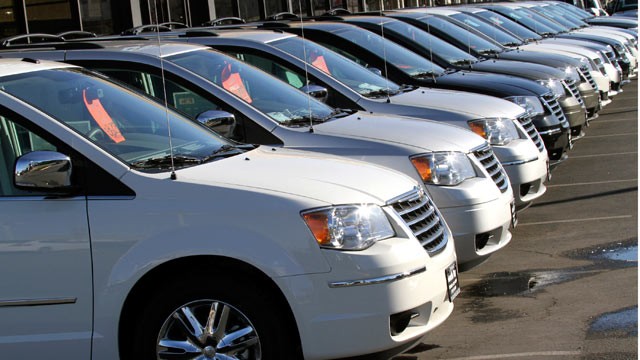20/20: Pot Luck: Inside a Beverly Hills Cannabis Club Dinner Party
I was watching 20/20 tonight and the show was called: I escaped my life. One of the segments was about a 53 year old woman and mom of two girls who also runs a public relations firm, is a medical marijuana user, founded the Beverly Hills Cannabis Club and is an activist to legalize cannabis in this country.
The moms of this club have battled cancer, chronic pain and crippling anxiety. They say that what got them feeling normal and healthy again wasn't prescription drugs but marijuana did.
They say that they do it to take the edge off and to remain functional and checked in as parents, not to get baked out of their minds. They feel that just as other parents might choose how much to drink around their kids, they are the only ones who can judge what the line between being stoned and buzzed is. They say that they struggle with how to best educate their children on the subject of drug use, just like any parent.
The moms say they try to be responsible and healthy by choosing to vaporize the marijuana. Using small mechanical devices which look like cigarettes, it heats the cannabis just enough to make the THC active and doesn't produce as much harmful smoke.
At the parties, they create edibles, consisting of fettuccine and chicken with marinara sauce made from cannabis infused olive oil and strawberry shortcake.
So, I was not surprised to hear about this because of the fact that Marijuana is becoming legal in more and more states, nor about the fact that they mentioned how happy they felt and how it took them out of depression. I was glad that they mentioned how they were like zombies and checked out when they were using prescription drugs. This is something that seems to get overlooked quite frequently, in my opinion. Prescription drugs are being abused and I have heard of parents taking and even abusing them. They are laid up in bed all day and it becomes more of an excuse, unfortunately, to the kids expense.
I do worry for these parents for the fact that they are doing this in front of their kids. Vaporizer or not, I don't feel that is ever a good idea. Although, I don't know why it would be any more appropriate or okay for someone to smoke or drink in front of or around kids. But, I guess we do it and that is okay. There is still a big stigma in this country about marijuana use. It will be interesting to see what comes of this in the years to come.
Watch the video and let me know what you think or have to say about this topic. Do you think it can make you a better parent?
The moms of this club have battled cancer, chronic pain and crippling anxiety. They say that what got them feeling normal and healthy again wasn't prescription drugs but marijuana did.
They say that they do it to take the edge off and to remain functional and checked in as parents, not to get baked out of their minds. They feel that just as other parents might choose how much to drink around their kids, they are the only ones who can judge what the line between being stoned and buzzed is. They say that they struggle with how to best educate their children on the subject of drug use, just like any parent.
The moms say they try to be responsible and healthy by choosing to vaporize the marijuana. Using small mechanical devices which look like cigarettes, it heats the cannabis just enough to make the THC active and doesn't produce as much harmful smoke.
At the parties, they create edibles, consisting of fettuccine and chicken with marinara sauce made from cannabis infused olive oil and strawberry shortcake.
So, I was not surprised to hear about this because of the fact that Marijuana is becoming legal in more and more states, nor about the fact that they mentioned how happy they felt and how it took them out of depression. I was glad that they mentioned how they were like zombies and checked out when they were using prescription drugs. This is something that seems to get overlooked quite frequently, in my opinion. Prescription drugs are being abused and I have heard of parents taking and even abusing them. They are laid up in bed all day and it becomes more of an excuse, unfortunately, to the kids expense.
I do worry for these parents for the fact that they are doing this in front of their kids. Vaporizer or not, I don't feel that is ever a good idea. Although, I don't know why it would be any more appropriate or okay for someone to smoke or drink in front of or around kids. But, I guess we do it and that is okay. There is still a big stigma in this country about marijuana use. It will be interesting to see what comes of this in the years to come.
Watch the video and let me know what you think or have to say about this topic. Do you think it can make you a better parent?



